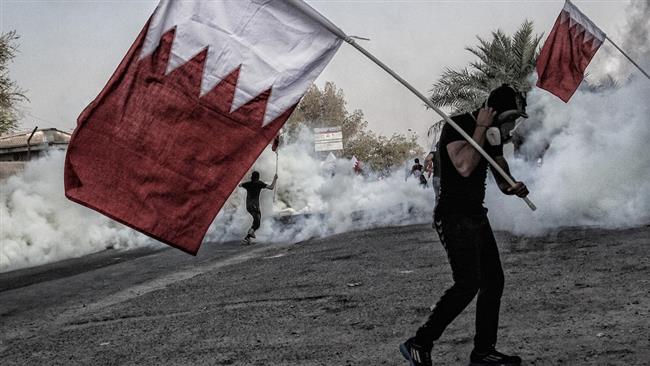
RNA - The protesters took to the streets in the village of Ma'ameer, situated about 15 kilometers south of the capital, Manama, on Monday and threw Molotov cocktails at police vehicles. The marchers also set some tires on fire.
Regime forces fired tear gas canisters and rubber-coated bullets in return. There were no immediate reports of casualties or arrests.
Bahrain’s Al Khalifah regime to execute two more Shia activists
Meanwhile, Human Rights Watch has expressed worries that two more Bahraini activists are at imminent risk of execution.
“Bahrain should not under any circumstances execute two more young men, especially where there is credible evidence of confessions obtained through torture and unsound convictions,” Joe Stork, deputy Middle East director at Human Rights Watch, said on Monday.
On December 29, 2014, Bahrain’s Fourth Superior Criminal Court handed down death penalty to Mohamed Ramadan and Husain Ali Moosa for their alleged involvement in a bombing on February 14, 2014 in the city of Muharraq, which resulted in the death of a policeman.
Ramadan’s wife, Zainab, told the New York-based rights group that her husband looked “pale, skinny, weak, and shaken,” when she met with him at a strictly monitored visit nearly a fortnight after his arrest on February 18, 2014.
A month after his arrest, the Bahraini activist told his family that officers at the Criminal Investigations Directorate and Riffa police station had tortured him to elicit confessions.
On January 15, Bahrain executed Abbas al-Samea, 27, Sami Mushaima, 42, and Ali al-Singace, 21, by firing squad. The killings came a week after the Court of Cassation upheld death sentences against the trio after finding them guilty of killing three policemen, including an Emirati officer, in the northern village of al-Daih back in March 2014.
Even the United States, the strongest ally of the Al Khalifah regime, reprimanded Bahrain over the executions.
“We've … seen allegations that the individuals facing execution were victims of torture, and that the evidence used against them in court was extracted, in part, through coerced confessions,” US State Department spokesman John Kirby said on Tuesday.
Anti-regime protesters have held demonstrations on an almost daily basis ever since the popular uprising began in Bahrain in February 2011.
They are demanding that the Al Khalifah family relinquish power and let a just system representing all Bahrainis be established.
847/940